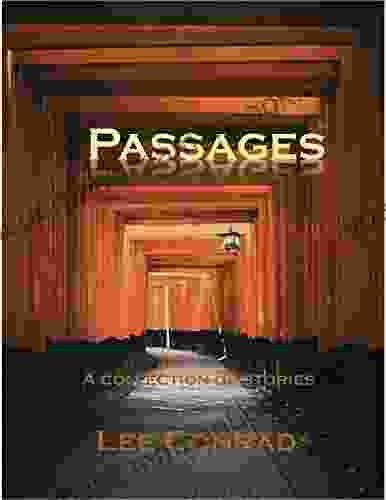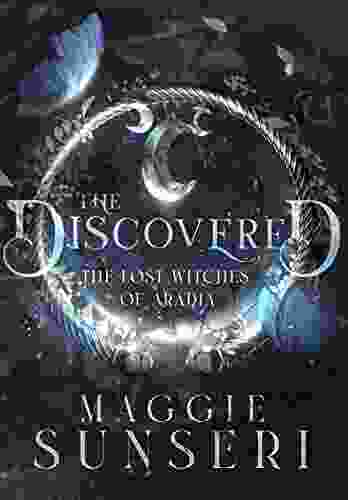Unveiling the Secrets: The Lost Witches of Aradia Rediscovered

In the annals of history, the stories of women have often been marginalized and forgotten. The same is true for the history of witchcraft, which has long been dominated by the male perspective. However, a recent discovery has shed new light on the untold history of witchcraft in Italy, particularly the lives and practices of the "Lost Witches of Aradia."
4.3 out of 5
| Language | : | English |
| Text-to-Speech | : | Enabled |
| Enhanced typesetting | : | Enabled |
| Word Wise | : | Enabled |
| Print length | : | 320 pages |
| Lending | : | Enabled |
| File size | : | 2541 KB |
| Screen Reader | : | Supported |
The Lost Witches of Aradia were a group of women who lived in the region of Tuscany in the 13th century. They were followers of a pagan goddess named Aradia, who was said to be the daughter of the ancient god of witchcraft, Lucifer. The witches of Aradia practiced a form of witchcraft that was closely tied to nature, and they used their powers to heal the sick, protect their communities, and control the forces of nature.
The Lost Witches of Aradia were first mentioned in a book called the "Aradia Gospel," which was written in the 19th century. The book contained a collection of songs and rituals that were said to have been passed down from the witches of Aradia. However, the book was largely dismissed as a work of fiction until recently, when scholars began to re-examine its contents.
In 2009, a team of researchers led by Dr. Sabina Magliocco of the University of California, Berkeley, published a new translation of the Aradia Gospel. This new translation revealed that the book was not a work of fiction, but rather a genuine record of the beliefs and practices of the Lost Witches of Aradia.
Magliocco's research has shed new light on the lives and practices of the Lost Witches of Aradia. She has found that the witches were not evil or malevolent, as they were often portrayed in the popular imagination. Instead, they were ordinary women who used their powers to help their communities and protect themselves from harm.
The discovery of the Lost Witches of Aradia is a significant contribution to our understanding of the history of witchcraft. It shows that witchcraft was not just a male-dominated practice, but that women also played a vital role in the development and practice of witchcraft throughout history.
The Beliefs of the Lost Witches of Aradia
The Lost Witches of Aradia believed in a pantheon of gods and goddesses, including Aradia, Lucifer, and Diana. They believed that Aradia was the daughter of Lucifer, and that she had come to Earth to teach women the secrets of witchcraft.
The witches of Aradia also believed in the power of nature. They believed that the Earth was a living being, and that all living things were interconnected. They used their powers to heal the sick, protect their communities from harm, and control the forces of nature.
The Practices of the Lost Witches of Aradia
The Lost Witches of Aradia practiced a form of witchcraft that was closely tied to nature. They used herbs, plants, and other natural objects in their spells and rituals. They also practiced divination, and they used their powers to heal the sick and protect their communities from harm.
One of the most important rituals of the Lost Witches of Aradia was the "Witches' Sabbath." The Sabbath was a time when the witches would gather together to dance, sing, and feast. It was also a time when they would perform their most important rituals.
The Legacy of the Lost Witches of Aradia
The Lost Witches of Aradia were a powerful force in their community. They used their powers to help the sick, protect their communities from harm, and control the forces of nature. Their legacy is one of strength, resilience, and empowerment.
The discovery of the Lost Witches of Aradia is a reminder that the history of witchcraft is not just a male-dominated history. Women have always played a vital role in the development and practice of witchcraft, and their stories deserve to be told.
The Lost Witches of Aradia are a source of inspiration for all of us who are interested in the history of witchcraft and the empowerment of women. Their story is a reminder that we are all connected to the Earth and to each other, and that we all have the power to make a difference in the world.
4.3 out of 5
| Language | : | English |
| Text-to-Speech | : | Enabled |
| Enhanced typesetting | : | Enabled |
| Word Wise | : | Enabled |
| Print length | : | 320 pages |
| Lending | : | Enabled |
| File size | : | 2541 KB |
| Screen Reader | : | Supported |
Do you want to contribute by writing guest posts on this blog?
Please contact us and send us a resume of previous articles that you have written.
 Top Book
Top Book Novel
Novel Fiction
Fiction Nonfiction
Nonfiction Literature
Literature Paperback
Paperback Hardcover
Hardcover E-book
E-book Audiobook
Audiobook Bestseller
Bestseller Classic
Classic Mystery
Mystery Thriller
Thriller Romance
Romance Fantasy
Fantasy Science Fiction
Science Fiction Biography
Biography Memoir
Memoir Autobiography
Autobiography Poetry
Poetry Drama
Drama Historical Fiction
Historical Fiction Self-help
Self-help Young Adult
Young Adult Childrens Books
Childrens Books Graphic Novel
Graphic Novel Anthology
Anthology Series
Series Encyclopedia
Encyclopedia Reference
Reference Guidebook
Guidebook Textbook
Textbook Workbook
Workbook Journal
Journal Diary
Diary Manuscript
Manuscript Folio
Folio Pulp Fiction
Pulp Fiction Short Stories
Short Stories Fairy Tales
Fairy Tales Fables
Fables Mythology
Mythology Philosophy
Philosophy Religion
Religion Spirituality
Spirituality Essays
Essays Critique
Critique Commentary
Commentary Glossary
Glossary Bibliography
Bibliography Index
Index Table of Contents
Table of Contents Preface
Preface Introduction
Introduction Foreword
Foreword Afterword
Afterword Appendices
Appendices Annotations
Annotations Footnotes
Footnotes Epilogue
Epilogue Prologue
Prologue Jake Adelstein
Jake Adelstein Hannah Shield
Hannah Shield Voltaire
Voltaire H P Gentileschi
H P Gentileschi Margaret Gibson
Margaret Gibson Fenella J Miller
Fenella J Miller Celia Kinsey
Celia Kinsey Herman E Daly
Herman E Daly Gary Kuchar
Gary Kuchar Suzi Weiss Fischmann
Suzi Weiss Fischmann Heather Gudenkauf
Heather Gudenkauf Jed Emerson
Jed Emerson Kim Pearson
Kim Pearson Diana J Mason
Diana J Mason Kathryn M Obenchain
Kathryn M Obenchain Harry Crews
Harry Crews Samuel Wagan Watson
Samuel Wagan Watson Mark Anielski
Mark Anielski Shanna Handel
Shanna Handel Chris Thompson
Chris Thompson
Light bulbAdvertise smarter! Our strategic ad space ensures maximum exposure. Reserve your spot today!

 Robert Louis StevensonA Journey Through Time: Unveiling the Enchanting Collection of Historical...
Robert Louis StevensonA Journey Through Time: Unveiling the Enchanting Collection of Historical... Dwight BlairFollow ·17.9k
Dwight BlairFollow ·17.9k Billy FosterFollow ·7k
Billy FosterFollow ·7k Eli BrooksFollow ·8.4k
Eli BrooksFollow ·8.4k Terry BellFollow ·17.5k
Terry BellFollow ·17.5k Craig BlairFollow ·18.2k
Craig BlairFollow ·18.2k Brian BellFollow ·19k
Brian BellFollow ·19k Ted SimmonsFollow ·11.8k
Ted SimmonsFollow ·11.8k Terence NelsonFollow ·18.9k
Terence NelsonFollow ·18.9k

 Jeremy Mitchell
Jeremy MitchellPlay We Now On Christmas Violin Christmas: A Heartfelt...
Play We Now On...

 Terry Bell
Terry BellTales from the Road: Confessions of an Atlanta Uber...
In the vibrant...

 Ervin Bell
Ervin BellThe French Admiral: A Gripping Naval Adventure with Alan...
In the vast expanse of...

 Henry David Thoreau
Henry David ThoreauCrochet Cozy Afghan Patterns: Crochet Weekend Afghan...
to Crochet...

 Orson Scott Card
Orson Scott CardAn Archaeological View Of The Industrialization Of North...
The industrialization of North America was a...

 Josh Carter
Josh CarterClipboard Christmas Skits by Tom Spence: A Festive...
A Christmas...
4.3 out of 5
| Language | : | English |
| Text-to-Speech | : | Enabled |
| Enhanced typesetting | : | Enabled |
| Word Wise | : | Enabled |
| Print length | : | 320 pages |
| Lending | : | Enabled |
| File size | : | 2541 KB |
| Screen Reader | : | Supported |










